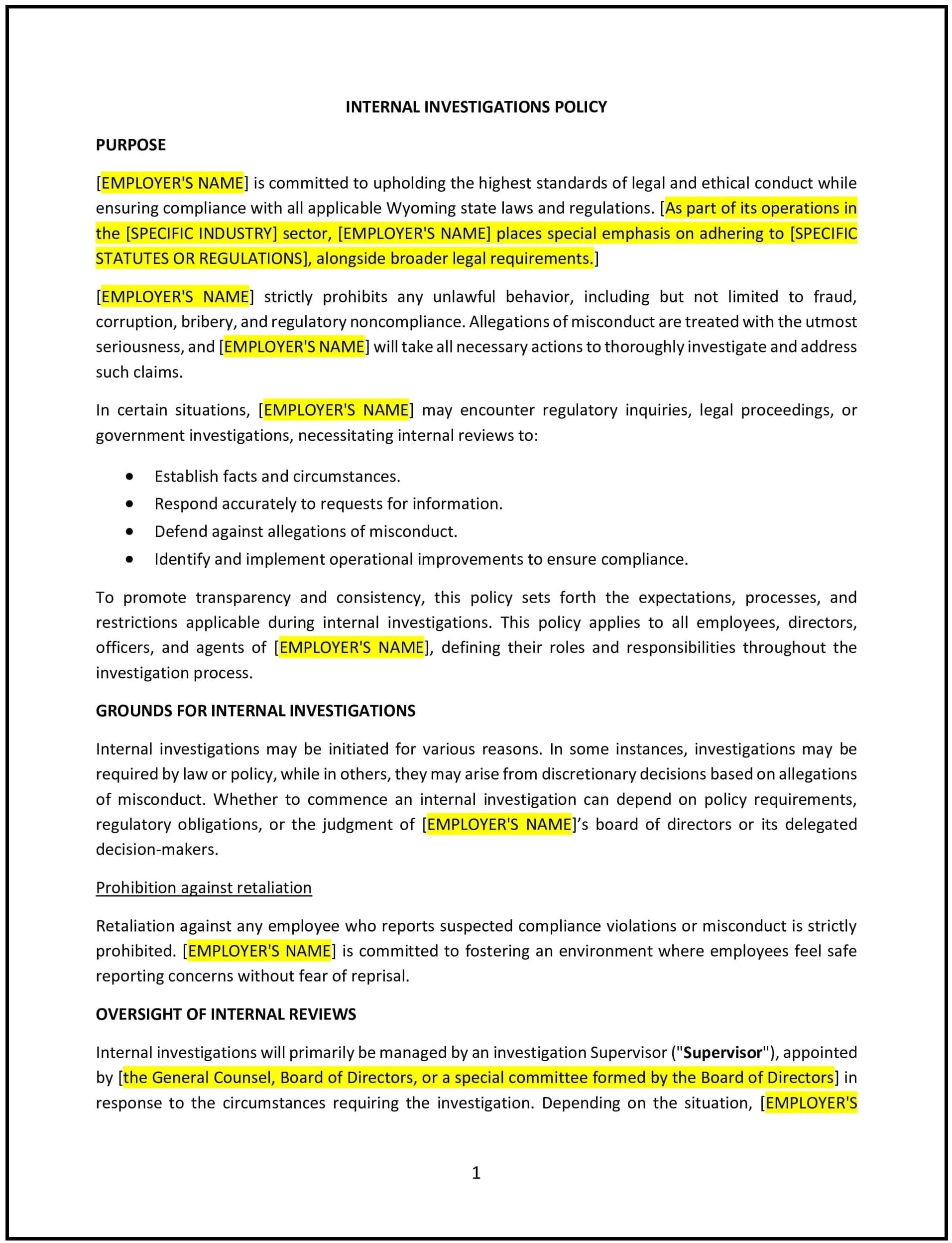Internal investigations policy (Wyoming): Free template
Got contracts to review? While you're here for policies, let Cobrief make contract review effortless—start your free review now.

Customize this template for free
Internal investigations policy (Wyoming)
In Wyoming, an internal investigations policy helps businesses manage workplace concerns, such as misconduct, harassment, or policy violations, through a fair and consistent approach. This policy outlines procedures for conducting investigations while protecting the rights of employees and promoting compliance with applicable laws.
This policy establishes guidelines for initiating, conducting, and resolving investigations, ensuring transparency and fostering trust within the workplace.
How to use this internal investigations policy (Wyoming)
- Define the scope: Clearly outline the types of incidents covered, such as harassment, discrimination, theft, or policy violations, and specify who is subject to the policy.
- Establish reporting procedures: Provide employees with clear instructions on how to report concerns, including anonymous options and designated points of contact.
- Outline investigation steps: Include procedures for collecting evidence, interviewing involved parties, and documenting findings, ensuring thorough and unbiased investigations.
- Assign roles and responsibilities: Define the roles of HR, managers, and legal advisors in conducting and overseeing investigations.
- Support compliance: Align the policy with Wyoming and federal employment laws to ensure investigations are conducted legally and ethically.
Benefits of using an internal investigations policy (Wyoming)
An internal investigations policy provides several advantages for Wyoming businesses:
- Promotes fairness: Ensures all investigations are conducted impartially and consistently, protecting the rights of all parties involved.
- Supports compliance: Aligns with employment laws, reducing the risk of legal disputes or penalties.
- Enhances trust: Demonstrates a commitment to addressing employee concerns transparently and effectively.
- Protects the organization: Minimizes risks by addressing issues promptly and preventing escalation.
- Adapts to local needs: Reflects Wyoming’s workforce dynamics, including rural workplaces and industry-specific challenges.
Tips for using an internal investigations policy (Wyoming)
- Communicate clearly: Share the policy with employees during onboarding and ensure it is easily accessible in the workplace.
- Train managers and HR: Provide training on conducting effective and unbiased investigations to ensure consistency.
- Maintain confidentiality: Protect the privacy of all parties involved to foster trust and prevent workplace disruptions.
- Document thoroughly: Keep detailed records of all investigation steps, findings, and resolutions to ensure transparency and accountability.
- Review regularly: Update the policy to reflect changes in laws, workplace dynamics, or organizational priorities.